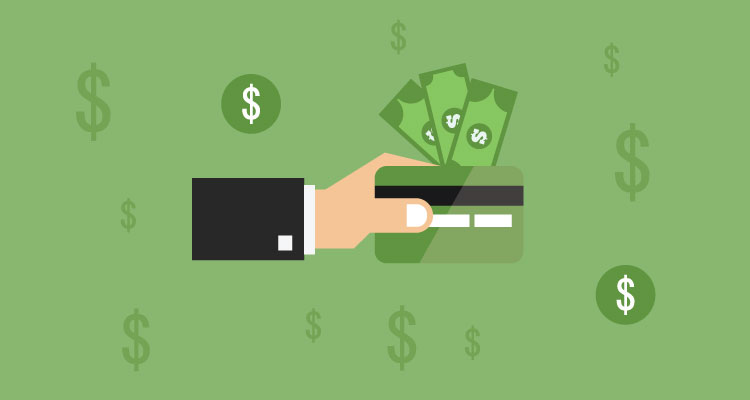Everyone wants to avoid ATM fees. Sometimes going to an ATM can feel like highway robbery! Between fees charged by your bank and fees charged by the ATM owner, you could find yourself paying $6 or more just to get cash from your own bank account. If you ask me, that is something you should be able to do for free. If you follow these five easy tips, you can avoid ATM fees at any bank or ATM in the world. Follow along to learn more about how to avoid ATM fees when you use your debit card for cash.
Table of Contents
ToggleUse a bank-owned ATM
The simplest way to avoid ATM fees is to stick with ATMs in your bank’s ATM network. If you bank with a large brick-and-mortar bank like Chase, Bank of America, US Bank, or Wells Fargo, your bank charges you big fees in most cases when you use an ATM owned by any other bank. That is in addition to the fees charged by the ATM owner.
Many Americans use this type of large, traditional bank for a variety of reasons, but if you do you should be aware of all of the fees your bank charges and how to avoid them. A quick slice of pizza after a trip to the ATM could cost twice as much after taking ATM fees into account. If you feel like you’re getting ripped off at the ATM and want to find a better way to avoid ATM fees while keeping quick access to cash, follow along to learn alternatives in the next two sections, plus other ways to avoid fees with your current account below.
Get reimbursed by your bank
A small number of banks, notably Chime and Simple, charge no fees no matter what you do with your checking. But some banks go a step further and offer a limited ATM fee reimbursement for ATM owner’s fees if you do need to go out-of-network for cash. An example is Ally Bank, which offers some ATM reimbursements every month for withdrawals outside of the Ally network.
If you don’t use much cash but don’t want to have to go out of your way when you do need an occasional ATM, this type of arrangement is ideal. ATM fee reimbursements are most popular with online-only banks, as they typically offer the smallest ATM network and want to offer customers a no-fee option in exchange for a lack of branches and owned ATMs.
Get an ATM-free bank account
If you want to take it to the next level, there is one checking account nearly anyone can get with unlimited ATM fee refunds with no extra work or tracking on your part. That is the Investor Checking account from Charles Schwab Bank. This checking account is available with no fees to any Schwab customer. You can sign up quickly and easily and get a debit card that charges no fees at any ATM in the world and automatically reimburses you for any ATM fees charged by other banks in the United States or abroad.
Of course, signing up for a new bank account may not make sense for everyone. In my case, I already had an investment account with Schwab years before, so opening up an Investor Checking account was a no-brainer. I estimate hundreds of dollars in ATM fee savings over the years. The account also comes with extra perks like no monthly fees, automatic free transfers from a linked account to avoid overdrafts, and instant transfers to or from any linked Schwab account.
Grocery store cash back
Moving to a new bank does not make sense for everyone. And these online-only banks are a deal breaker for anyone who gets paid in cash regularly, like a restaurant server or valet parking attendant. In this case, you still have a few creative options to avoid ATM fees. One is to go to the grocery store and make a small purchase with a debit card. Most supermarkets give you an option to get up to $40 cash back for free with a purchase.
If you were going to pay $6 in ATM fees anyway, you might as well go to the grocery store and get something cheap for yourself and take the cash back. A pack of gum, a bottle of water, a candy bar, or a small bag of chips costs just a couple of dollars. If you can pay $1 for candy and get your cash back at no extra charge, you could easily save $5 or more going to the grocery store instead of an ATM.
Go cashless
It’s 2018. Who uses cash anymore anyway. If you really want to avoid ATM fees, just stop using cash altogether. Over the last five years, I’ve come across just a few businesses that wouldn’t take my credit card. I took my needs elsewhere. The food cart, restaurant, and store that lost out on sales for cash-only policies are not enough reason for me to change my purchasing and payment habits as a consumer.
Credit cards are the safest way to pay as long as you pay them off in full every month before the due date. Credit cards help you avoid fraud losses, avoid ATM fees, and can help you earn a pile of travel miles, points, or cash back each time you spend. When you can go cashless, why waste a dollar at the ATM? You don’t have to. That is the best way to avoid ATM fees.















